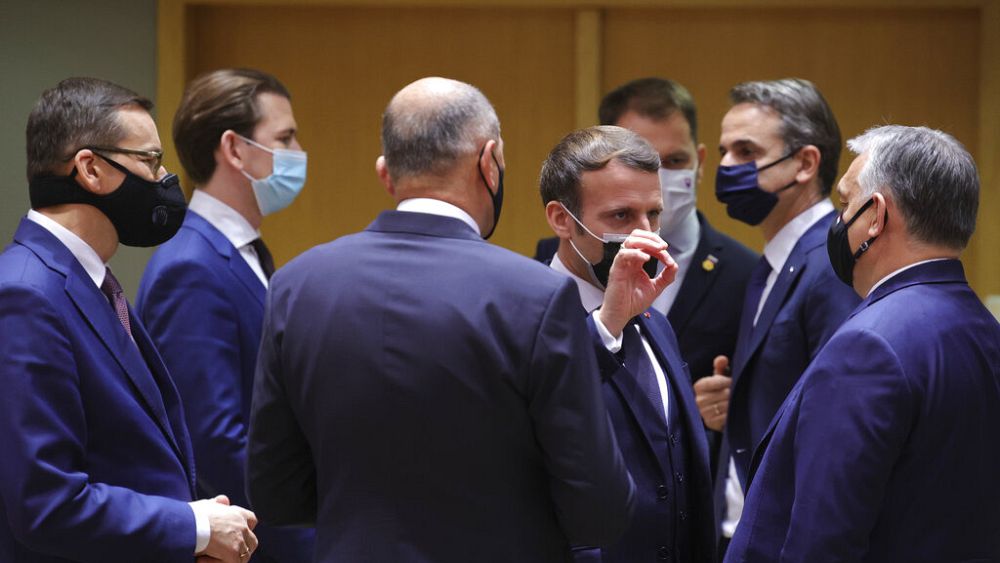
As it gears up to show the world that multilateralism works in fighting the climate crisis, the European Union will have one of its periodic bouts of internal jockeying that may well give the opposite impression.
But don’t be fooled by the appearances. They will be shaped in large part by domestic politicians prone to blame “Brussels” for what are national responsibilities — and by the countless commentators on the EU who prefer to focus on political “clashes” rather than on policy realities.
The EU’s broad “Fit for 55” package of draft climate legislation, presented by the European Commission on July 14, includes an element whose economic and political importance is inversely related to the public attention this matter generally receives.
At issue is a proposal to amend the EU effort-sharing law so it is aligned with the EU’s new objective of cutting greenhouse gases by at least 55% in 2030 compared with 1990 levels (instead of by just 40%). This law, known as the ESR, sets a binding target on each member country to curb discharges in sectors such as agriculture, buildings, waste and road transport that are outside the European emissions-trading system (ETS).
These so-called non-ETS sectors account for about 60% of EU emissions. National governments are responsible for devising the measures to tackle this pollution; in other words, they have the freedom to chart the best reduction paths.
The national targets vary according to a member country’s wealth — its gross domestic product — and carrots are offered to all through flexibilities in the accounting system for these emissions.
Under the new proposal, Belgium would have to cut its discharges from the non-ETS sectors by 47% in 2030 versus 2005, whereas Poland would need to reduce by just 17.7%. Similarly, Germany would face a 50% reduction target, while the Czech Republic would need to cut by 26%.
These national targets in the “Fit for 55” package are more ambitious than the previously agreed ones (with the exception of Malta’s, which would be unchanged). That makes the scope — and need — for tailor-made responses by member countries as important as ever.
In my native Belgium, its reduction target helps to build domestic consensus behind national climate goals by engaging the country’s regions.
The recent devastating and deadly floods in Belgium and neighbouring Germany – which experts link to climate change – are a wake-up call about the need for strengthened national efforts across the EU to reduce emissions.
It is in this context that a separate Commission proposal to establish a distinct European carbon-pricing system for buildings and road transport must be seen.
Many voices, including in eastern Europe, are arguing that such a move would risk a popular backlash by driving up fuel costs in consumer-facing industries.
I share these concerns; a European market-based instrument of this kind is unsuitable for tackling such local issues. Furthermore, with such an EU-wide system in place, national governments could have a disincentive to take their own sector-specific actions.
Like the rest of the “Fit for 55” package, the Commission proposal to create an ETS covering suppliers of heating and road-transport fuels needs the support of member-country governments on the one hand and the European Parliament on the other.
If the early noise is any indication, this part of the package may face a real uphill battle for approval, even with the inclusion of a new “Social Climate Fund” to help address “energy poverty”.
Nonetheless, the fundamental question would remain: what do individual member countries plan to do about curbing emissions in the building and road-transport sectors?
If a proposal for a new European tool is to be discarded, national governments have all the more responsibility to show the will and imagination to come up with their own measures. Among the pressing tasks are greater energy efficiency in buildings (with one aim being to help lower-income citizens pay their fuel bills), cleaner modes of transport and more eco-friendly farm policies.
Brussels-bashing by national political actors and observers remains a widespread phenomenon even after decades of it in the UK helped eventually to drive the country out of the EU.
Brexit is a humbling lesson about the political and economic costs of creating false impressions of the EU, magnifying them and ignoring truths about underlying policy realities in the bloc. The EU is still very much driven and shaped by the powers of its national governments.
This makes legislation and governance in the EU trickier, not least when it comes to climate policy. But it also means that each member country must do its fair share through home-grown policies to help achieve a common European objective.
That is important for the country itself, for the EU and for the world as a whole as it seeks to deliver on the landmark 2015 Paris Agreement to fight global warming.
Saskia Bricmont is a Belgian member of the European Parliament and of its Green political group.